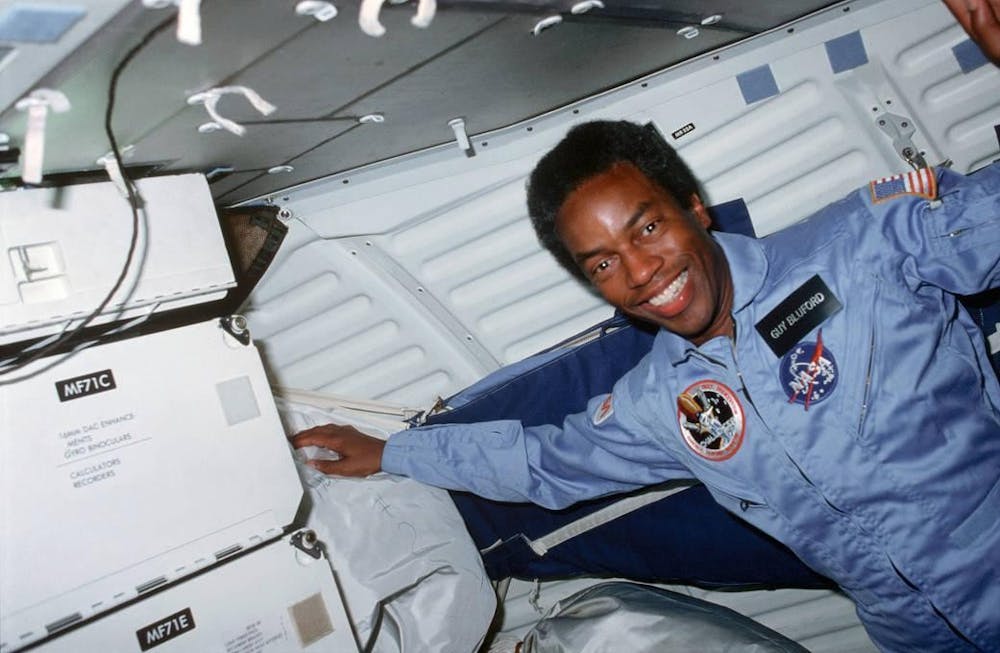President Trump’s budget request for fiscal year 2021 proposes a 12% increase in overall funding to the National Aeronautics and Space Administration. The budget introduces several notable changes to NASA’s funding, including a 46% increase in space exploration to land a crewed mission on the moon by 2024.
Conversely, it proposes slashing funding for NASA’s science programs by 12% and eliminating the STEM engagement budget, which is used for grants and cooperative associations.
But why bother with space policy in the first place? Why not privatize it all? Should our tax dollars really be funding quasar research and meteor analysis?
Yes, they should.
Space policy is justified as one of the most appropriate uses of public funding because NASA consistently makes contributions to humanity’s general well-being in a way other government agencies do not. To meet the demands of our time and ensure NASA’s continued success, we should increase funding for all of its programs.
Lots of arguments are made against the practicality of space policy, from the economic to the social to the philosophical. However, the opposition is misguided.
One of the most common objections to the public funding of space exploration is its supposedly exorbitant cost. However, NASA’s budget totals $22.6 billion for the 2020 fiscal year. Compared to the $738 billion our government is spending on defense, this figure seems reasonable.
Contrary to popular belief, NASA is actually a boon to the economy. NASA employs more than 17,000 people whose salaries average out at $91,013 per year. Moreover, NASA is an integral part of the global space economy through its prodigious investment in space-related industries, such as space technology manufacturing, which have been identified as key national priorities. Aside from the strategic importance of such investments, the space economy generated $414.75 billion dollars in 2018, according to the Space Foundation.
Privatization is undesirable. NASA renders services for the government that private businesses do not. For example, NASA offers grants that have bolstered scientific research in areas such as microbial ecology and climate change.
Additionally, as a world leader in the space industry, NASA represents the U.S. on the world stage in a way that no business could. Maintaining a strong international presence on space policy is strategically advantageous.
Not to mention NASA sent a loveable rover to Mars. Talk to me when your space capsules have endearing personalities, Elon.
Despite its wealth of cutting-edge technology and decades of research, the agency has found no evidence of intelligent extraterrestrial life. The nearest potentially habitable planet outside of our solar system, Proxima Centauri-b, is located approximately 4.24 light years away, and we are generations away from potentially attempting to colonize it.
But the majority of Americans still think it is essential that NASA continues to be involved in space exploration, according to the Pew Research Center.
Trying to figure out how to navigate and survive space yields insight into survival on Earth. For example, NASA’s food science research has influenced closed-system ecology and pushed the needle forward on 3D printed food. This work could help develop more efficient and sustainable food sources for the future.
Not to mention there may come a time when it is necessary to harvest resources from outer space to maintain human infrastructure. One day we may even have to colonize nearby planets for survival.
The U.S. has an obligation to both its citizens and to humanity to propagate the species and expand our knowledge of the universe. Few other government agencies are tasked with such a forward-looking humanitarian mission.
It can be argued that the kernel of the skepticism surrounding NASA regards the merit of its forward-looking goals in government generally. Much suspicion is aroused in the heart of a conservative when there is no immediate payoff to be found. One analogy is climate change, which is another area of policy bedeviled by political skepticism despite its clear benefits in the long run.
If we want to avoid making the same myopic, greedy mistakes the previous generation made, we should ignore these skeptics and increase funding to all of NASA’s programs, including its STEM engagement and scientific research. These forward-thinking initiatives are an investment in humankind’s future and a testament to our species’ continued progress.
Carter Cooley (he/him) is a junior studying political science. After graduating he plans to go into political campaign management.






